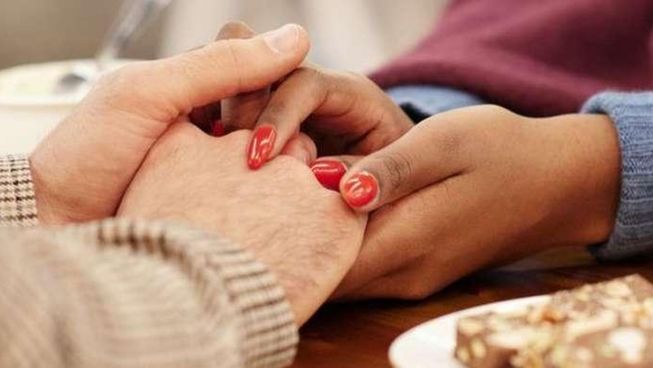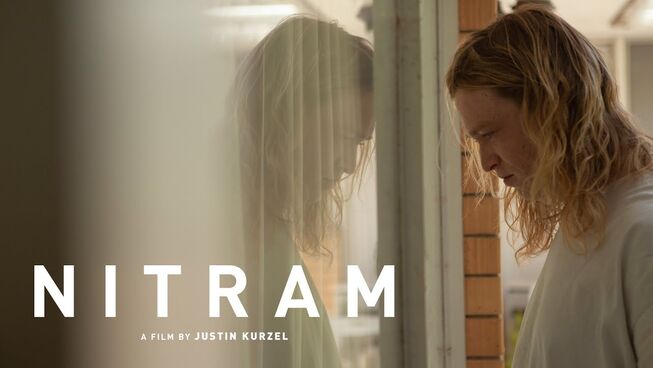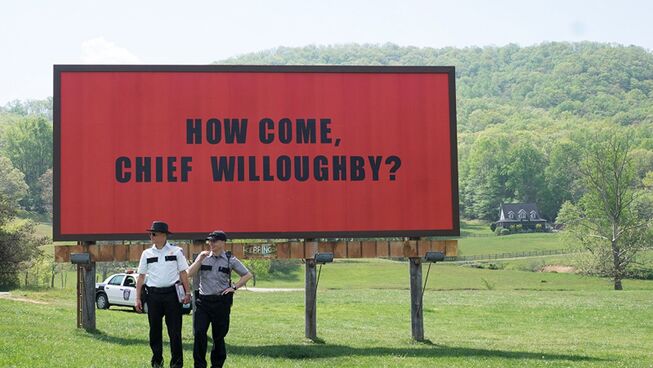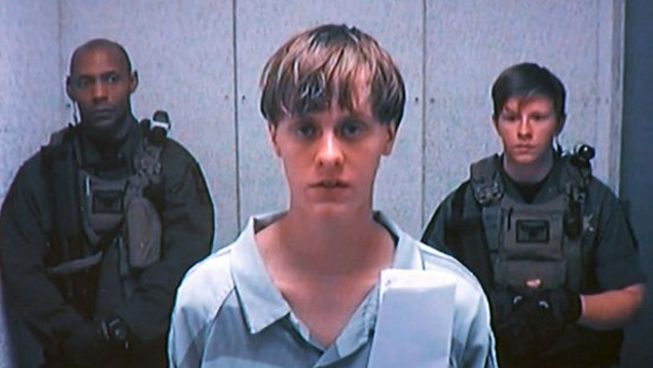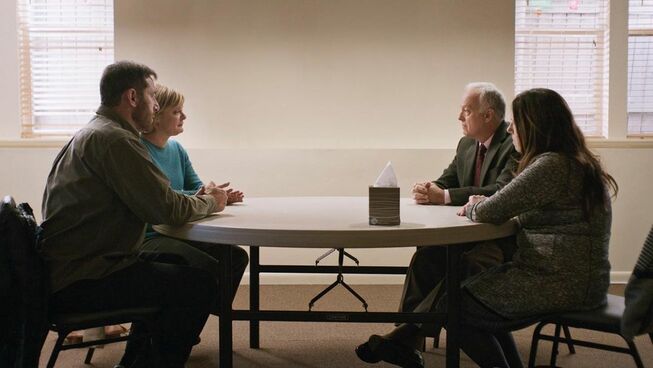
4 out of 5 stars
When it comes to mass shootings, the images that usually come up first are of the victims. There are scenes of grieving that occur outside of the building where they occur and police tape, but few pictures of those who were left behind. What rarely gets reported are the stories of the family who are profoundly affected by the tragic deaths of their loved ones. As his directorial debut, actor Fran Kranz (Cabin in the Woods) gives us a glimpse into this side of one such egregious act.
Jay and Gail Perry (Jason Isaacs, Martha Plimpton) have been working through the horrors of the loss of their son, who was shot in a school shooting. It has rippled through the family over the years as each tries to make sense of this tragedy. Within the healing process they have coordinated time to talk with the parents of the shooter. After jumping through the legal hoops that such a meeting took to transpire, they eventually find themselves at a small Episcopal church. The grieving couple sits in the back meeting room of the quaint building until the arrival of Linda and Richard (Ann Dowd, Reed Birney).
With only a table between them, the two couples work through the formalities of the session and then the questions begin. Kranz’s script works through every stage of how things came to be on that fateful day that touched both couple’s lives. This talented cast runs through every emotion expected and many that were surprising with such a meet-up. Overcoming barriers and unearthing how a tragedy of this magnitude could happen and humanising those who were directly impacted by the actions of one disturbed young man.
Each actor brings a layer to this character play that will keep anyone willing to endure it captivated until the end. The dialogue that occurs provides an in-depth portrait of the lives destroyed by the nightmarish act that strikes fear into the heart of any parent. Jason Isaacs and Reed Birney show how two fathers on opposite sides of a situation have to process the actions that connected their sons. As they work past the barriers that both had put up to help them cope, these men masterfully work through the words that help them break free from their pain.
While it is the work of Ann Dowd and Martha Plimpton that delivers most of the emotional punch that is expected from this premise. Both of them deliver performances that will reach into the hearts and rip out the agony that each has within them. They epitomise what most would expect from this unique encounter. While each individually shows a range of feelings that will leave anyone watching irrevocably changed. All this seems to be a setup for gun control, but proves to be a tale that involves the need for forgiveness within the grieving process.
Mass is a deeply affecting story that will be difficult for many to endure, but worth seeking out. Walking in the parents' shoes from both sides of a tragic event of this ilk will leave many devastated in the end. While the performances by the cast are some of the best of the year, this film provides the world a fresh new directorial talent in Fran Kranz. His story is one worth seeing, but be warned that it will reach into your soul and leave its compelling message.
REEL DIALOGUE: Where is your limit of forgiveness?
"You only have to forgive once. To resent, you have to do it all day, every day."
At the heart of Mass is the concept of forgiveness becoming the underlying message. People are put into challenging situations that push them to the edge of considering the boundaries of forgiveness. Two things to consider in this discussion is the limit of forgiveness and why we should forgive at all. It can be said that resentment only hurts the one that holds onto it. The Bible is an excellent place to start when considering some of the concepts of forgiveness from this film.
Matthew 6:14-15 - For if you forgive others their trespasses, your heavenly Father will also forgive you, but if you do not forgive others their trespasses, neither will your Father forgive your trespasses.
Matthew 18:21-22 - Then Peter came up and said to him, “Lord, how often will my brother sin against me, and I forgive him? As many as seven times?” Jesus said to him, “I do not say to you seven times, but seventy times seven.
